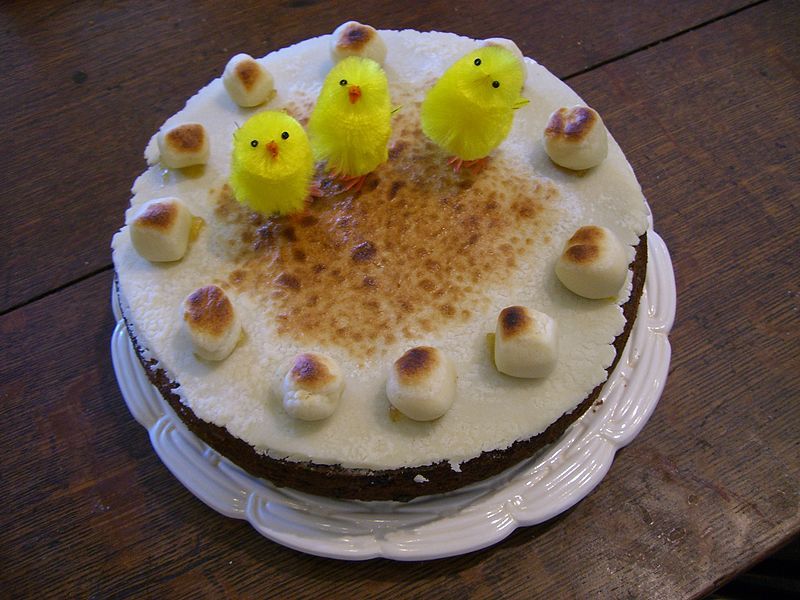Simnel Cakes for Mothers
Almost a hundred cakes were distributed to mothers who passed in procession at St John’s Church, Oakfield, on Sunday, Mothering Sunday, by the Vicar, the Rev. E T H Royds.
Members of the Mothers’ Union were present at the service, which included special prayers for the occasion.
Mothers who were unable to be present received a cake later.
Simnel cake is a light fruit cake with two layers of almond paste or marzipan, one in the middle and one on top, that is eaten during the Easter period in the United Kingdom, Ireland and some other countries.
Simnel cakes have been known since at least the medieval times. The cake was originally made for the middle Sunday of Lent, Laetare Sunday; also known as Refreshment Sunday, Mothering Sunday, Sunday of the Five Loaves, and Simnel Sunday – after the cake, when the forty day fast would be relaxed. More recently, they became a Mothering Sunday tradition, when young girls in service would make one to be taken home to their mothers on their day off.
The word simnel is probably derived from the Latin word simila, meaning fine, wheaten flour.
Conventionally eleven marzipan balls are used to decorate the cake, with a story that the balls represent the twelve apostles, minus Judas. This tradition developed late in the Victorian era, altering the mid Victorian tradition of decorating the cakes with preserved fruits and flowers.
Source: Isle of Wight Times 3 March 1940 & Wikipedia. Image from Wikicommons

